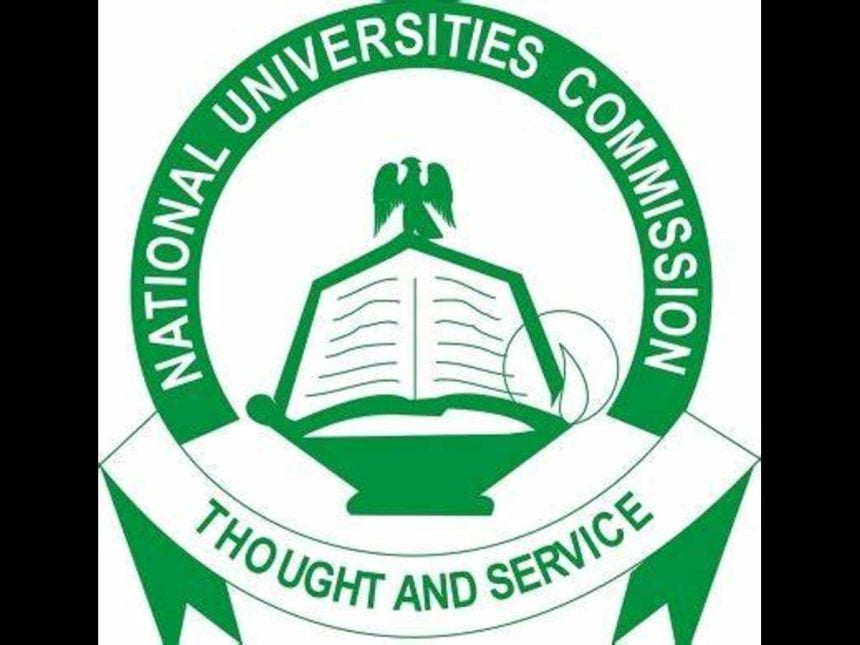The National Universities Commission (NUC) debunked a false report being circulated in a social media that its accreditation exercise to universities is a mere formality.
Executive Secretary of the Commission, Professor Abdullahi Ribadu in a statement in Abuja said the attention of the Commission has been drawn to a social media publication attributed to one Taofik Olatubonsun where unsubstantiated assertions have been circulated to misinform the general public on the Commission’s well respected Accreditation tradition.
According to him, the false report claim in the said publication that “Accreditation is a mere formality to the effect that universities without adequate staffing can receive full accreditation assessment” is not only false, baseless but this has been disseminated from an uninformed position.
The NUC boss said he would ordinarily not respond to such spurious online allegations, but the Commission is duty bound to issue this rebuttal to put the record straight and clear the air on this trending issue.
ALSO READ: Restore people’s confidence in governance, Imo PDP tells Uzodinma
He added such clarification becomes imperative so as to avert any collateral damage to the hard earned reputation of Nigerian University System, over the glorious years.
“The Commission is a creation of law and is the sole regulatory agency empowered by Section 10 of the Education National Minimum Standards and Establishment of Institutions) Act Cap E3 LFN 2004, to conduct Accreditation of Programmes in universities and other degree-awarding institutions in Nigeria.
“It is one of the core mandates of the Commission wherein its Accreditation process is a rigorous evaluation system designed to ensure that universities uphold high academic benchmarks.
“Therefore, the objective of accreditation is conformity with the extant Core Curriculum Minimum Academic Standards.
“In carrying out the exercise, the Commission adopts a peer review approach, where it engages independent panels of Professors who are subject experts to serve as evaluators in the accreditation of academic programmes.
“The Commission’s regulatory regime has been adjudged to be one of the most robust quality assurance ecosystems in Africa and countries like Namibia, Gambia and recently Niger Republic etc have come to understudy its best practices.
“Additionally, foreign universities regularly utilise NUC’s accreditation results for the screening of applications for admission purposes in their institutions. We reckon that there is no such perfect Accreditation system anywhere in the world, but we are poised as a University System to continually work on deepening our culture of quality assurance,” Ribadu stated.
Highlighting the stringent nature of the process, he explained that NUC’s programme accreditation evaluates individual academic programmes to ensure compliance with the Core Curriculum Minimum Academic Standards (CCMAS).
He noted further that: “The programme accreditation instrument used for the exercise has seven sections, four of which are considered core areas, which include Academic Matters, Staffing, Physical Facilities, and Library.
“To attain Full Accreditation Status, a programme must score a minimum of 70% in each of the four core areas and an overall score of 70% or above in its entirety. It is important to note that earning Full Accreditation Status does not imply that a programme has all the necessary resources in perfect measure.
“However, this is deemed to be an acceptable standard of performance, with adequate room for further improvements.
“In addition, Staffing being a core component of accreditation, is a function of several factors. There are seven indicators in the evaluation of staffing, where the adequacy of a permanent staff on a programme is a major consideration.
“The NUC guidelines also permit a maximum of four part-time academic staff which is equivalent to two permanent staff in respect of scoring per programme. It is noteworthy that during physical accreditation visits, evaluators ascertain the actual number of staff on ground.
“This process involves the physical inspection of their employment records and qualifications. Therefore any attempt to present temporary staff or falsify records by any university will attract sanctions, as prescribed in the guidelines.
“Consistent with the code of conduct for accreditation, the NUC equally maintains strict ethical standards during accreditation which panelists are fully aware of. Additionally, any Officer of the NUC found compromising the process or abusing the terms of his/her engagement, shall face severe disciplinary action.
“The Commission which does not condone any unwholesome behaviour will continue to strengthen its accreditation process to the highest standards of due diligence, while upholding its integrity, at all times.
“Once accreditation results are submitted to the NUC, the Commission undertakes a vigorous internal review of the reports to ensure that evaluators adhere to NUC’s accreditation guidelines.
“This is followed by a ratification session where NUC representatives defend the findings of the accreditation reports before the NUC Management Committee. This process which is typically thorough and painstaking, is tailored towards ensuring the credibility of the results.
“As a university system which has enjoyed the glorious years of effective and reputable quality assurance, we are proud to say we are determined to ensure that the Nigerian University System operates at full strength despite the numerous challenges that it continues to face,” he added.
Ribadu also enjoined the universities to establish and operationalize their respective internal quality assurance mechanisms to enhance the culture of quality as a good practice.
“We also wish to inform the public that the NUC remains committed to ensuring that Nigerian universities produce competent graduates who can compete globally.
“As a result, we urge stakeholders and the general public to rely on verified information rather than on baseless accusations that undermine the credibility of our higher education system,” he stated.






